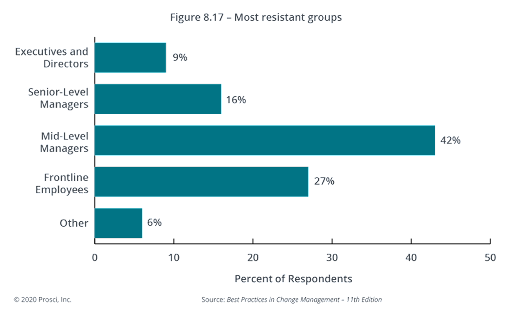
Imagine the amount of data being generated every single day by your employees – it’s humongous, right?
This influx of information is making knowledge management systems increasingly important for organizations. It centralizes all business information, so your employees can work with minimum friction and maximum clarity.
While there are substantial benefits knowledge management brings to the table, it also comes with its own set of challenges. For example, fostering a knowledge-sharing culture, getting buy-in from employees, and ensuring top-notch security.
This blog draws light on some of the biggest knowledge management challenges and also provides practical solutions to help you rise above them.
Let’s go!
7 Common Knowledge Management Challenges That Need Your Undivided Attention
Creating a knowledge base is inarguably the best thing you can do for your business.
It can be tremendously useful for your customer support and team collaboration endeavors.
However, the prospect of building the knowledge management system comes with its set of unique challenges that must be overcome to enjoy a hassle-free experience.
Let’s draw your attention to the most common knowledge management challenges and explore their solutions.
1. Increasing Knowledge Management Adoption
Change is inevitable but not so easily acceptable to everyone, no matter the benefits it brings to the table.
When you adopt new tools and systems and expect employees to use them rigorously, it can all get too overwhelming for them. Most employees tend to resist changes and prefer working in their comfort shells, using the same old techniques.
According to recent research, mid-level managers are the most resistant to changes, as shown in the image below.

When employees are adept at working in their old ways, asking them to go through an unfamiliar path can be extremely challenging.
So, how can you get the necessary buy-in from your employees?
💡Solution:
Often, the root cause of employee resistance is a lack of awareness of why this change is necessary and how it can impact work.
When implementing a knowledge management system, it’s vital to educate employees about how it works and what benefits they can achieve.
Explain how increased adoption can shoot up productivity by saving their time and energy. Give examples of how employees of other organizations have benefitted by embracing knowledge management in their work lives.
This will give them the confidence to give your knowledge management system a shot.
2. Constantly Updating Your Knowledge Management System
One of the most common knowledge management challenges is keeping the information relevant and up to date for employees.
This is a herculean task that requires continuous improvements and modifications in your knowledge management system. And if this process is not performed to perfection, you will run the risk of employees using stale information for carrying out high-priority activities.
The result?
Poor deliverables and inadequate outcomes!
Using outdated resources and experiencing negative results might shake employees’ confidence in your knowledge management system. And they will be reluctant to use it for work.
💡Solution:
For employees to trust your knowledge management system, it’s vital to ensure they have the most recent, accurate, and updated information at their disposal.
Deploying knowledge management tools that are equipped with an insightful reporting system can help solve the problem. Using reports, you can gain keen insights into which articles are working and which aren’t.
You also get a peek into the keywords that fail to return the right results and broken links in your knowledge platform.
Such useful insights can be harnessed to bring positive changes to your knowledge management platform so that it’s always brimming with accurate and updated information.
Here’s a quick video that sheds light on how these reports work.
3. Fostering a Culture of Knowledge Sharing
The reason building a culture of knowledge sharing is a painstaking task is that employees are used to working in silos.
Work silos often result in a tendency to hoard knowledge with the aim of remaining indispensable for an organization and stand out among peers.
If employees are reluctant to share knowledge in the first place, creating a knowledge management system will not bring the positive outcomes you anticipated.
💡Solution:
The first thing you should be doing to enhance knowledge sharing is educating employees about the benefits they can reap.
As employees are set in their old ways and have inhibitions in sharing knowledge, it’s ideal to conduct workshops where company experts guide them on the importance of a collaborative work culture.
Show how hoarding knowledge can hinder employees’ growth in the long term. Give them examples of how knowledge-sharing instances in the past have boosted teams’ and your company’s performance.
Giving examples is sometimes the best way to persuade employees to make employees try and trust the new path.
4. Embracing New Technologies
Your company will probably have multiple tools in place to accomplish different tasks.
For example, you might have project management software to make project delivery faster and easier. Slack is another common tool most companies use for effective communication and collaboration.
Then, there is the Google Suite, that is a must-have for employees to get things done quickly.
On top of this, if you add another tool for knowledge management, most employees might take it as an added burden. They might not be inclined to invest their time and energy in learning about another tool.
This is another major challenge of knowledge management that can hamper the implementation.
💡Solution:
Technology fatigue is a common phenomenon that can be addressed by educating employees about the value your knowledge management system can add to their work.
Make employees understand the reasons behind implementing knowledge management and how it will benefit them in the long run. Ask them to dedicate a small amount of time every day to figure out how this system works and then gradually make it a regular part of their work.
5. Getting Green Flag from Higher Management
When implementing a knowledge management system, it’s vital to gain the valuable support of everyone from the higher management.
Your knowledge management initiatives can’t fructify without the necessary backing of the people working at the top. Senior leaders, embracing new ways of working, will help set the right benchmark for the rest of the employees.
Failing to get buy-in from senior management will give employees another excuse to stick to the same old ways, which will gradually slow down the adoption of your knowledge management system.
💡Solution:
There is an easy solution to this knowledge management challenge.
Senior leaders should actively embrace knowledge management and be a torchbearer of the initiative. They should lead by example and motivate employees to follow suit. While doing so, they should reinforce the importance of this new platform and highlight the advantages it can bring to the business.
6. Slow & Inaccurate Search
An ideal knowledge management system should return accurate results at lightning-fast speed.
When that doesn’t happen, employees are likely to lose interest and trust in this information-gathering platform.
Navigating an ocean of information to find a single article can be a daunting process, and if the knowledge management system’s search mechanism is not fast enough, the experience can be extremely frustrating.
💡Solution:
If you want to conquer such knowledge management risks and challenges, adopt a powerful tool that offers a Google-like search system. The tool should allow employees to narrow the search based on specific keyphrases and sort the results based on predefined criteria.
For example, ProProfs Knowledge Base is one such tool with a robust search system that starts showing relevant results as soon as a search query is typed.
7. Maintaining the Security of Your Knowledge Management Portal
Maintaining security is one of the biggest knowledge management challenges that many companies face.
A knowledge management platform comprises critical company information, which, if leaked, can be catastrophic for your organization. If this information reaches your competitors, they will have access to your clients, products, services, and a lot more. This data can be easily used against you, causing substantial losses to your company.
💡Solution:
Opt for a knowledge management tool that offers single sign-on and two-factor authentication features. Such features ensure that only authorized individuals get access to your knowledge management system.
With limited access to selected individuals, you can prevent security risks and keep your knowledge platform safe from malicious activities.
Read More: Knowledge Management Software & Tools for 2024
It’s Time to Rise Above the Knowledge Management Challenges
Knowledge management is incredibly important for organizations. However, implementing it is not a walk in the park.
The knowledge management process comes with its own set of challenges that can demotivate you to continue on this path.
Some of the key challenges for knowledge management systems are updating them regularly, maintaining security, and getting buy-in from employees and senior leaders. These are common challenges that can be overcome by following the practical solutions that we discussed above.
If you look at these challenges positively, you will realize there are opportunities in disguise to help you build a foolproof knowledge management system.
Getting the right tool, like ProProfs Knowledge Base, can work like a charm in this process. It is well-equipped with all the knowledge management features you need to create, design, and publish your knowledge management platform.
Do you want a free Knowledge Base?
We have the #1 Online Knowledge Base Software for instant self-help







